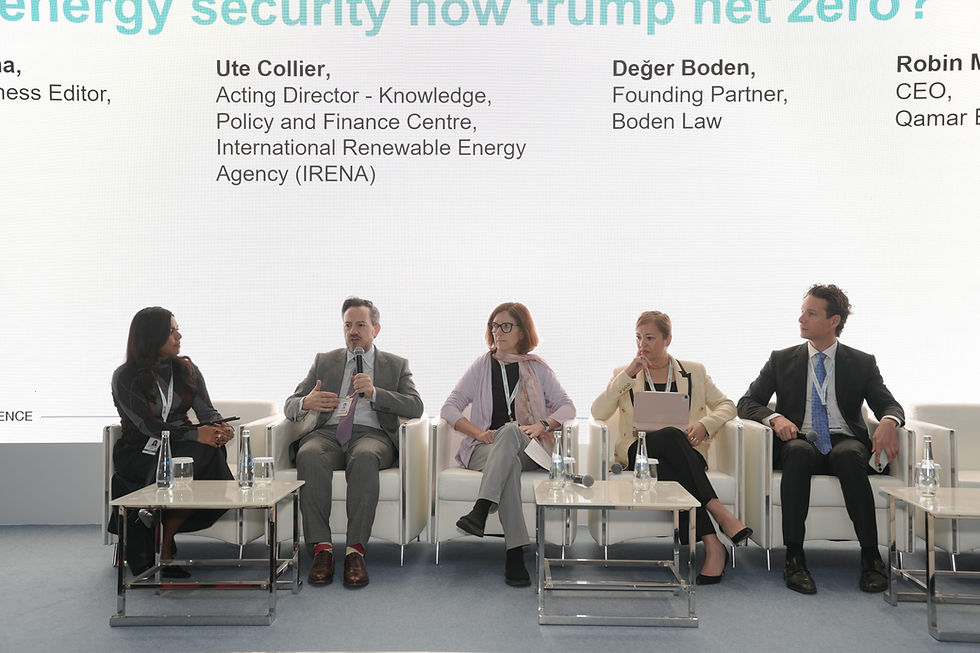Peer power: panel on SMEs collaborating towards net-zero
- Ethan Fulton

- Apr 23, 2024
- 2 min read

Small and medium-sized enterprises (SMEs) are key players in the journey towards net zero. While they are limited compared to large corporations in resources and footprint, SMEs face unique challenges. However, SMEs are crucial in that they represent over 90% of businesses and 50% of employment worldwide.

In "Peer Power: How are SMEs Collaborating Toward the Net Zero Journey?", held on the third day of the 2024 World Future Energy Summit, experts in the intersection of SMEs and sustainability came together to explore how small businesses are stepping up.
Moderated by Zest Associates Managing Director Jeffrey Beyer, the panel featured:

Chandresh Dhanki, CEO at the Resource Alliance
Hem Lakhani, co-founder of Acuflex Global
Tim Morris, Business Development Manager at The Plastic Road Company
Matthias Gelber, Net Zero Brand Ambassador at Desert Board
These questions guided the discussion:
Is net zero an achievable goal for SMEs? - Lakhani questions whether it should be the large, well-resourced corporations that drive change first and support SMEs taking initiative.
How can SMEs collaborate to share best practices and innovations? - COP28 established the SME Climate Hub MENA initiative to drive action towards goals in the region. It is essential that SMEs can collaborate to share best practices and break any stigmas or barriers.
What is the incentive for SMEs to pursue costly net zero adaptations and how can they secure funding? - Grants and government support can help offset measuring and monitoring costs. Such financial assistance can also help make sustainable products more competitive, passing savings to consumers.
How can companies prove they are genuinely reducing emissions, not just offsetting them? Certifications and regulatory bodies could be the answer, but compliance can place a burden on SMEs.
This panel at WFES brought into focus key insights surrounding the role of SMEs in reaching net-zero, the challenges they face, and the solutions that will drive change and hope moving forward.


Comments